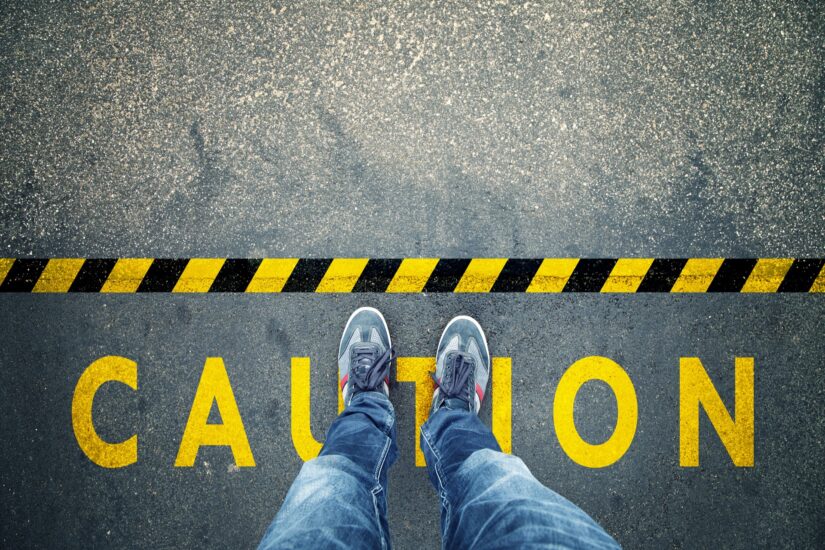Recently, two women were rushed to a Destin, Florida emergency room after being involuntarily drugged during an evening of socializing at the Coyote Ugly Saloon at Harbor Boulevard. While both women were treated and released, their ordeal raises liability issues that the lawyers at Fasig | Brooks can help navigate should you face a similarly nightmarish scenario.
When the Covid-19 pandemic was declared by the Centers for Disease Control in 2020, local jurisdictions throughout Florida enacted quarantines that prevented residents and tourists from enjoying their favorite restaurants, bars, and social clubs. As quarantine measures were scaled back once Covid vaccines and treatment medicines became readily accessible in 2021, the reemergence of law-abiding patrons enjoying themselves in public has, unfortunately, coincided with the reemergence of lawbreakers who are more than willing to tamper with the drinks of an unsuspecting person who has walked away to the dance floor or restroom—only to return to a spiked beverage that leaves them dazed or confused.
If you are wondering what steps should be taken if you believe that you have consumed a spiked drink at a business establishment, consider:
- Going to an emergency room or walk-in clinic for treatment,
- Filing a formal report with law enforcement,
- Filing a formal report with the business establishment.
First, a prompt examination by medical professionals serves the dual purpose of ensuring that there are no lingering effects from the consumed drugs, while also providing evidence about the symptoms that were present—and any medication or aftercare that is prescribed for treatment.
Second, when a complaint is filed with law enforcement, the assigned officer or deputy typically will go to the business establishment to ascertain whether any video surveillance from the time of the incident is available—and whether any of the establishment’s staff noticed any suspicious activity. If a suspect is identified, officers usually take delivery of business receipts to further determine whether a name can be matched with a face; a suspect could be arrested for offenses ranging from misdemeanor battery to felony battery, depending on the severity of a victim’s injuries.

Law enforcement officers will also cross-reference the “crime grid,” a database that shows all crimes that have occurred on or near the premises in question. In the Coyote Ugly Saloon matter, several recent news articles have noted that the Destin nightclub has been the scene of several shootings in recent years, a fact that increases the likelihood that the business establishment has insurance policies in place to compensate patrons who have been injured on or near their premises.
Third, when a complaint is filed with a business establishment, such notifies the owners that an incident has taken place on the premises so that they, in turn, can conduct an internal investigation into the allegations—while placing their insurance carrier(s) on notice about the incident.
After filing reports with law enforcement and the business establishment, a victim of involuntary drugging should then promptly seek legal counsel! Now, you may be wondering, “what type of lawsuit could I pursue if someone drugs me at a public establishment?” Under Florida law, there are several potential causes of action that could provide you with compensation under these circumstances, the first of which is suing the responsible person, if known, for civil battery. If law enforcement has arrested a suspect for battery or felony battery, that person can be sued individually in either county or circuit court, a determination that depends upon whether the damages, i.e., medical bills, pain and suffering, loss of consortium, mental anguish, or lost wages, is greater or less than $15,000.00.
The second cause of action could be a lawsuit against the business establishment where the incident occurred under a negligent security-premises liability theory. Under Florida law, a landowner owes a duty of care to protect invitees on their premises “for the purpose for which the land is held open to the public.” See Post v. Lunney, 261 So. 2d 146, 147 (Fla. 1972). Separately, a landowner has a duty to prevent the “criminal attack of a third person that is reasonably foreseeable.” Wood v. Camp, 284 So. 2d 691, 694 (Fla. 1973); Charterhouse Assocs., Ltd., Inc. v. Valencia.
In the above-listed incidents, Coyote Ugly Saloon’s primary business is serving alcohol and providing social space for invitees, which means that, arguably, the owners should have foreseen that a third party might spike the drinks of law-abiding patrons. Thus, an owner has the responsibility of taking reasonable measures to prevent such criminal acts including, but not limited to, the use of surveillance equipment, hiring of security, or affixing adequate lighting to ensure the reasonable safety of its patrons. When a business lacks these (and similar) protective measures, such only strengthens the case for damages suffered by a patron.
The Fasig | Brooks law firm has experience with handling both civil battery and premises liability cases, and we offer a free consultation for victims pursuing such claims at our offices in Destin, Tallahassee, Jacksonville, or via telephone. During this consultation, we will be able to discuss the specifics of your potential case and give you a clear understanding of how you could benefit from partnering with our award-winning team of personal injury attorneys. In the event that we take on your claim, you will be able to stay focused on your recovery and personal needs without the additional stress — all while knowing that you took the right steps to fight for the money that you deserve! The sooner you contact us, the sooner we can reach a settlement agreement that fairly compensates you for your injuries!







